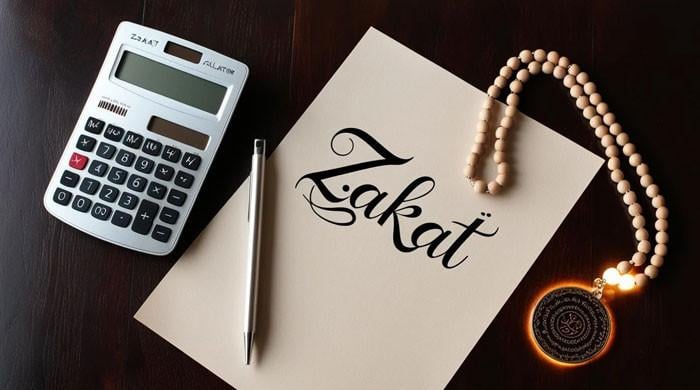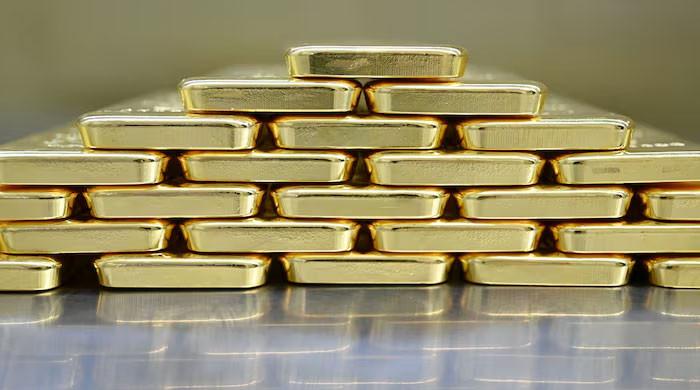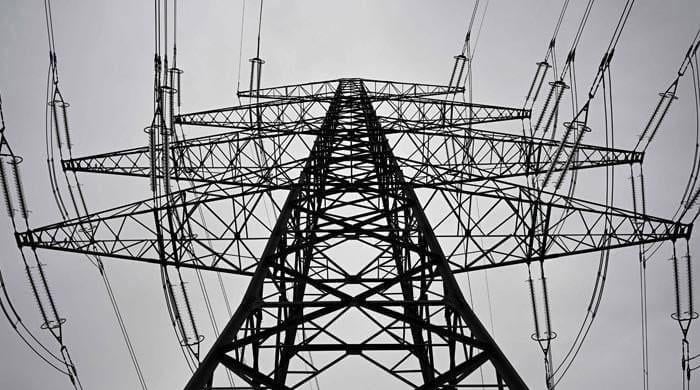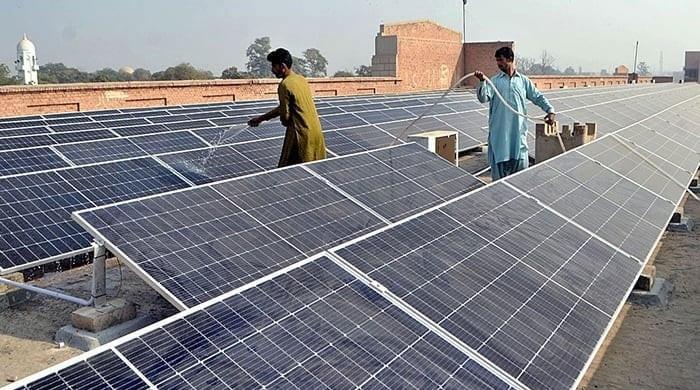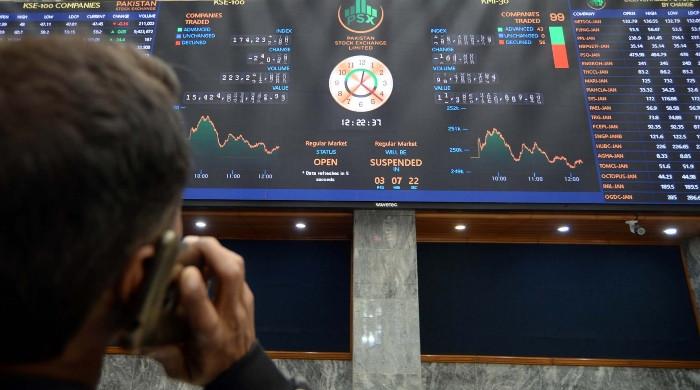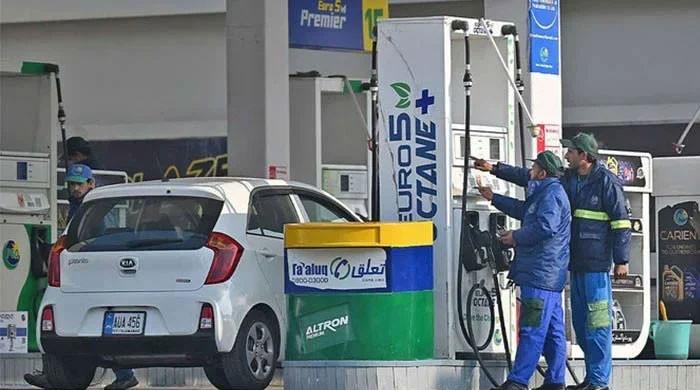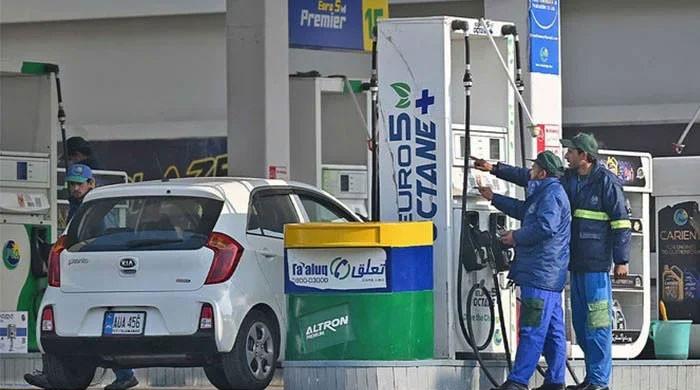Bruised rupee to further weaken on draining forex reserves, poor IMF programme revival
Trader says rupee is not expected to recover until IMF programme is restarted
January 15, 2023
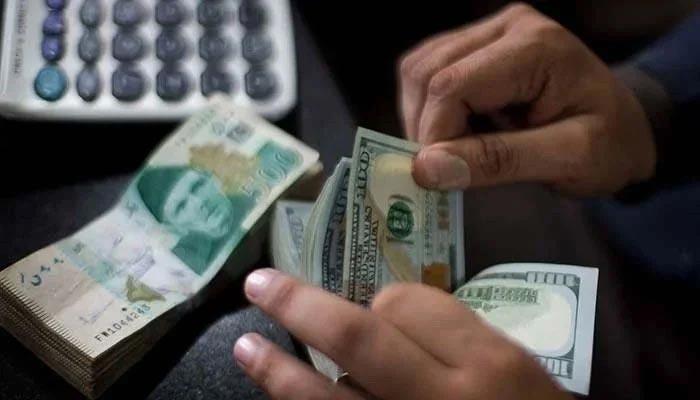
- Rupee loses 74 paisas against dollar this week.
- Rupee won't recover until IMF programme revival.
- Country experiencing balance of payments crisis.
KARACHI: The Pakistan rupee is expected to become weaker against the dollar in the coming week due to the depleting forex reserves and poor progress on reviving the International Monetary Fund (IMF) programme, The News reported Sunday citing traders.
During the outgoing week, the local currency fell by 74 paisas against the greenback. It closed at 227.41 on Monday as opposed to 228.15 in the last trading session (Friday).
“Up till the IMF programme is restarted and foreign currency inflows begin to land in the country, the rupee is not expected to recover,” a forex trader said.
On the sidelines of the Geneva conference, there was rarely any meaningful engagement with the IMF delegation. Finance Minister Ishaq Dar has stated that the power sector reforms (gas, energy, and circular debt), revenue deficits, and unbudgeted subsidies are the primary deal breakers.
It is noteworthy that he avoids mentioning rupee devaluation as an IMF requirement. It would appear that informal interactions, rather than formal ones, are where the devaluation condition is discussed (particularly when REER is close to 100).
Depleting forex reserves
Pakistan’s forex reserves held with the State Bank of Pakistan (SBP) dropped by $1.2 billion to $4.3 billion as of January 6 — enough to cover barely three weeks’ worth of imports.
The country is currently experiencing a balance of payments crisis due to large foreign debt repayments and a lack of external finance, which has severely depleted Pakistan's foreign reserves and led to persistent dollar shortages. The government has restricted several imports to save dollars, and some businesses have shut down as a result of being unable to import machinery or parts.
In December, remittances from Pakistanis working abroad fell to a 31-month low at $2.0 billion.
The country received $14.1 billion in remittances during the first six months (July-December) of the current fiscal year, 11.1% down from a year earlier.
Remittances are decreasing as more people use hawala and hundi, which offer better rates than the official rate. According to analysts, artificially controlling the exchange rate has resulted in a significant gap between the dollar interbank rate and the open market rate, which was having an impact on official flows as more people are using unauthorised methods to transfer money. As a result, substantial amounts of money have been moved outside traditional banking channels.
Geneva moot
Better news came from a fundraising event held in Geneva to aid Pakistan's recovery from flooding last summer. According to a tally released by Pakistan, trade blocs and countries including the European Union, China, and the United States, as well as multilateral lenders like the Islamic Development Bank, have offered $11 billion to assist in the rebuilding. Most of the money was in fresh loans from multilateral agencies.
The United Arab Emirates decided to lend Pakistan $1 billion and roll over an existing $2 billion loan. Saudi Arabia stated earlier this week that it is thinking about providing the nation with a bailout package in an effort to help Pakistan’s economy, which is struggling with catastrophic floods.
The Saudi Fund for Development (SFD) would also look into increasing the deposit to Pakistan’s central bank from $3 billion to $5 billion. Additionally, the plan to increase investments to $10 billion in Pakistan will be assessed.
Regarding the Saudi announcement, analysts stated that commitments and studies have been ongoing over the past three months. Analysts are flagging this as extremely unfavourable since it suggests that the two countries still hold divergent opinions. This was a good chance to declare genuine deal flow.




